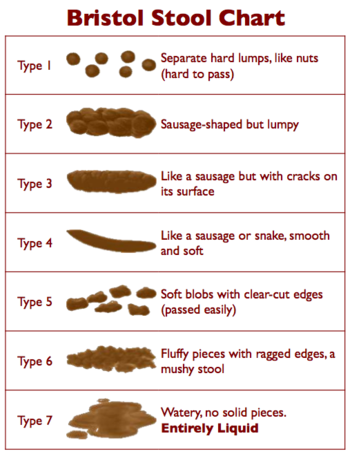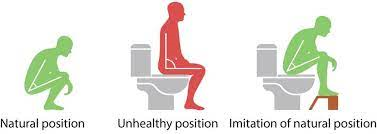Aspergillosis and pelvic health
Millions of people in the UK (and many more around the world) will suffer from a condition that affects their pelvic health. Although bladder and bowel problems are very common, this can still be a ‘taboo’ subject, and can interfere with everyday life. Many people assume that bladder and bowel conditions are just a part of life, especially with age, pregnancy or other serious health conditions. This is not the case. As the Bladder and Bowel Community states, “everyone with a bladder or bowel problem can be helped and many can be completely cured “.
Bladder Health
A common problem that aspergillosis patients face is stress incontinence. Stress incontinence is the leaking of urine when your bladder is under pressure, eg. when you laugh or cough. This can be a major issue for an aspergillosis patient with a chronic cough. Stress incontinence is also likely to impact on spirometry tests and airway clearance techniques. Due to the stigma surrounding incontinence, patients can be reluctant to seek help and may end up limiting their lives by planning everything around bathroom trips.
Other types of bladder incontinence:
- Urge incontinence: A sudden, desperate need to go to the toilet, with only a few seconds between the urge and the release of urine
- Mixed incontinence: A combination of both stress and urge incontinence
- Overflow incontinence: The bladder does not completely empty when you go to the toilet, meaning that you may pass small trickles of urine often but can never properly empty it
- Total incontinence: Severe and continuous incontinence
Nocturia: nocturia means waking up at night to pass urine. It is a symptom, not a condition, and is very common, particularly in older people. It is quite normal to wake up once or twice a night to empty your bladder, depending on your age and how long you sleep. If you need to do so more often, it can become very annoying and may mean you have an underlying medical problem. However, these problems can often be treated.
It is key to remember the World Health Organisation’s advice, “incontinence is a largely preventable and treatable condition, and certainly not an inevitable consequence of ageing”. If you are experiencing incontinence you should seek help from your doctor. You will usually be asked to complete a bladder diary, including details such as: how much fluid you drink, the types of fluid you drink, how often you need to pass urine, the amount of urine you pass, how many episodes of incontinence you experience and how many times you experience an urgent need to go to the toilet. It may be useful to take a completed diary with you to your first appointment to save time – you can download one at the bottom of this page. After some further tests and examinations, the first line of treatment is non-surgical: lifestyle changes, pelvic floor muscle training (Kegel exercises) and bladder training. If these do not help, then surgery or medication may be recommended.
Bowel health
There are many different types of bowel condition, some of which are very common and can affect all ages. Normal defecation rate for an adult is between three bowel movements per day to three bowel movements per week. If you are going less than three times a week and are experiencing pain, discomfort and straining on passing a motion, you are probably constipated. If you pass watery or very loose stools more than 3 times in a day you probably have diarrhoea. Constipation and diarrhoea may be due to medication, diet or stress (digestive problems are often linked emotional states), or they may be a symptom of another condition.
If you experience any of the following symptoms, you must see your GP as soon as possible:
- bleeding from your back passage
- blood in your stools (faeces), which can make them look bright red, dark red, or black
- a change in normal bowel habits lasting three weeks or more
- unexplained weight loss and tiredness
- an unexplained pain or lump in your tummy

Constipation:
Key rules for preventing constipation are: eating enough fibre (although eating a diet too high in fibre can increase bloating and discomfort), drinking 6-8 glasses of water a day and exercising regularly. Discuss with your doctor or pharmacist to see if any of your medications may be affecting your bowel habits. You can check your stool using the Bristol stool chart – ideally it will between 3 and 4.
When you go to the toilet elevate your feet using a 20-30cm foot stool, tighten your abdominal muscles and do not rush. Try to relax your anus and do not strain:

Diarrhoea:
Diarrhoea can have a variety of causes, including a bowel infection, eating too much fibre, some medications and anxiety/stress. If you are experiencing an acute episode of diarrhoea, make sure to remain hydrated and avoid solid food for a few hours (or up to a day depending on the severity). If the episode persists for more than a few days you should visit your GP as soon as possible. Some people experience recurrent diarrhoea, and this can be associated with irritable bowel syndrome. In some cases, people can link alcohol or certain types of food to episodes of diarrhoea – if this is the case you can eliminate these from your diet.
If you are experiencing constipation or diarrhoea often, and it’s affecting your day to day life, make sure to see your doctor. Do not be embarrassed – these are common problems, and they will have dealt with many cases before. It may be useful to fill in a bowel diary for a few days to take with you. You can download one of these below.
Further information
- NHS: Urinary Incontinence
- Bladder and Bowel Community
- Patient and Carer meeting – Pelvic Health Full Video (Facebook)
- Patient and Carer meeting – Pelvic Health Slides